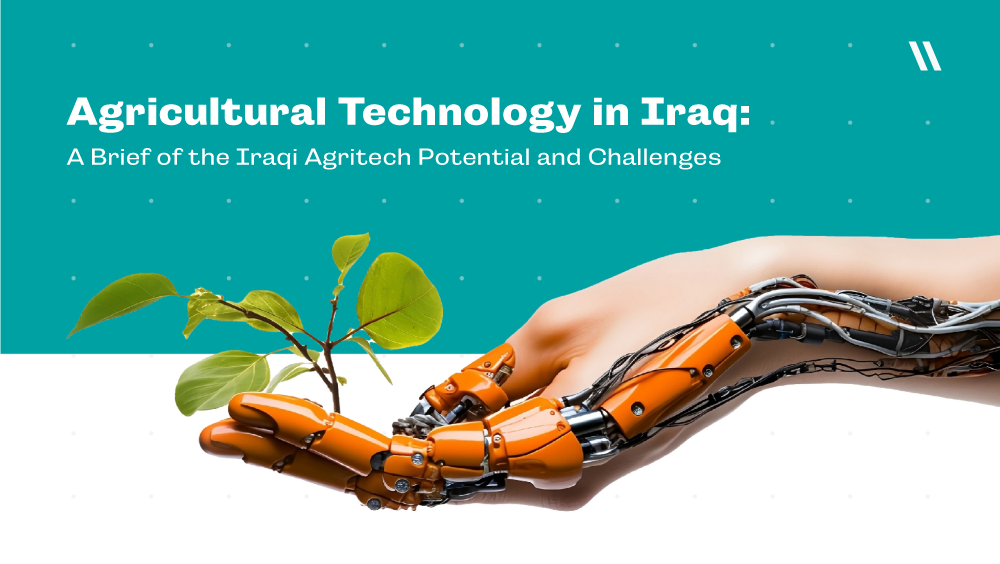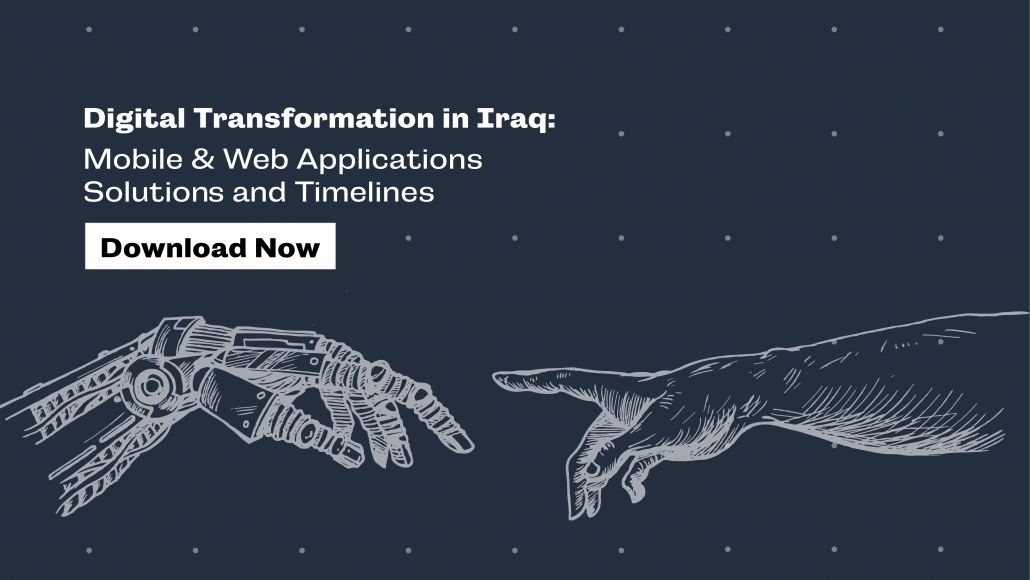This report brings to the table the reality of internships in Iraq because it has not taken a fair share of the Iraqi public discussion. Internships play a significant role in a smoother transition into the labor market and the economy by extension, as they prepare students and graduates to enter the labor market. The report explores the state of internships from different angles: the contribution of higher education regarding capacity building; lack of skills and alternative learning methods; the tendency towards public sector employment; and comprehensive analysis and description of the current internship models in Iraq.
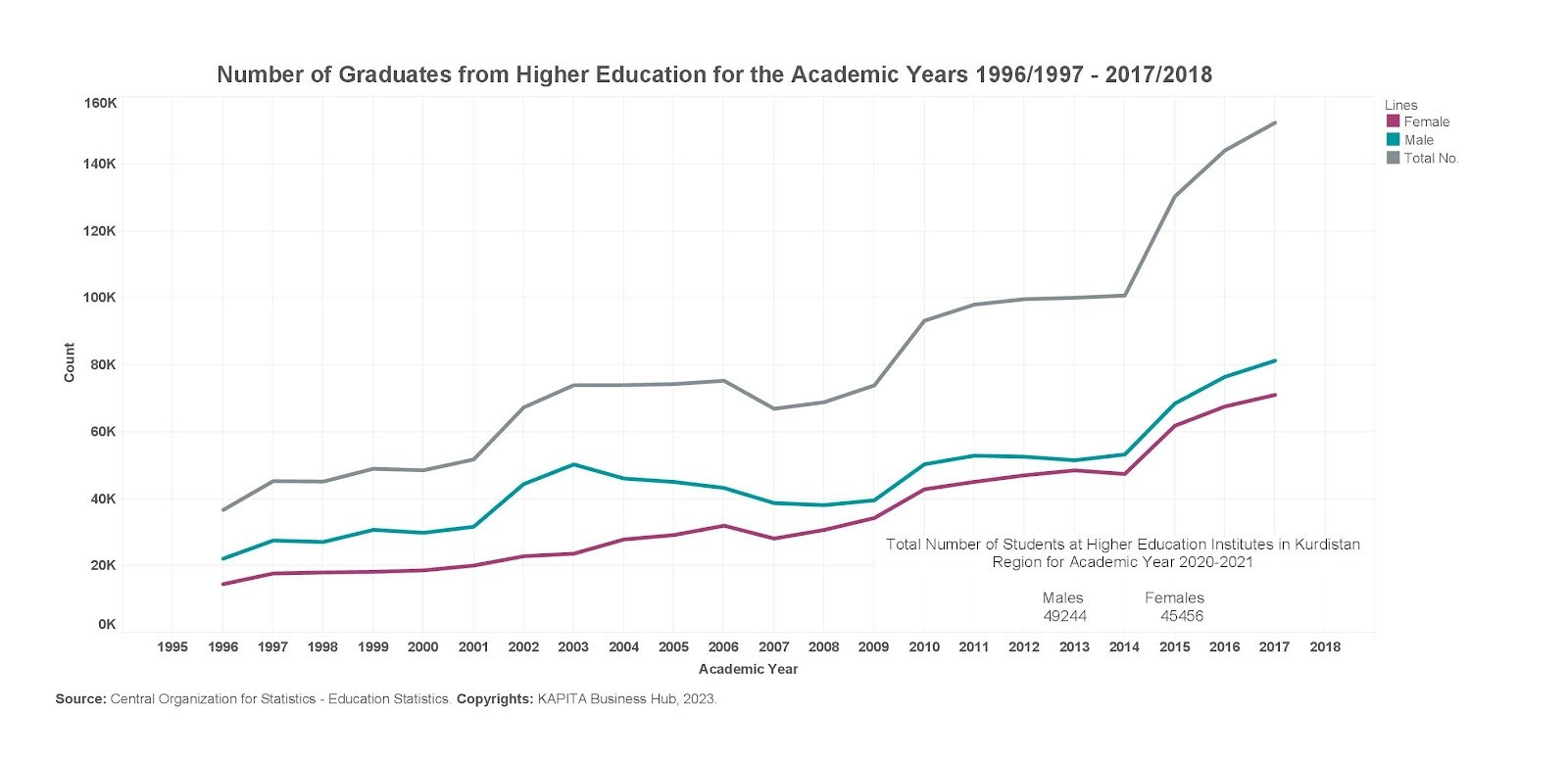
The Iraqi labor force adds up every year as more graduates are being pumped into the market that suffers from a skill gap because the supply of skill sets does not match the labor market demand. This is mainly due to inadequately performing theory-based educational system with outdated curricula and memorization-based teaching methods. To meet the market needs, graduates take professional development upon themselves by seeking other approaches. This report addresses the root causes behind this discrepancy and provides a list of currently required skills and the alternative learning methods taken to acquire them.
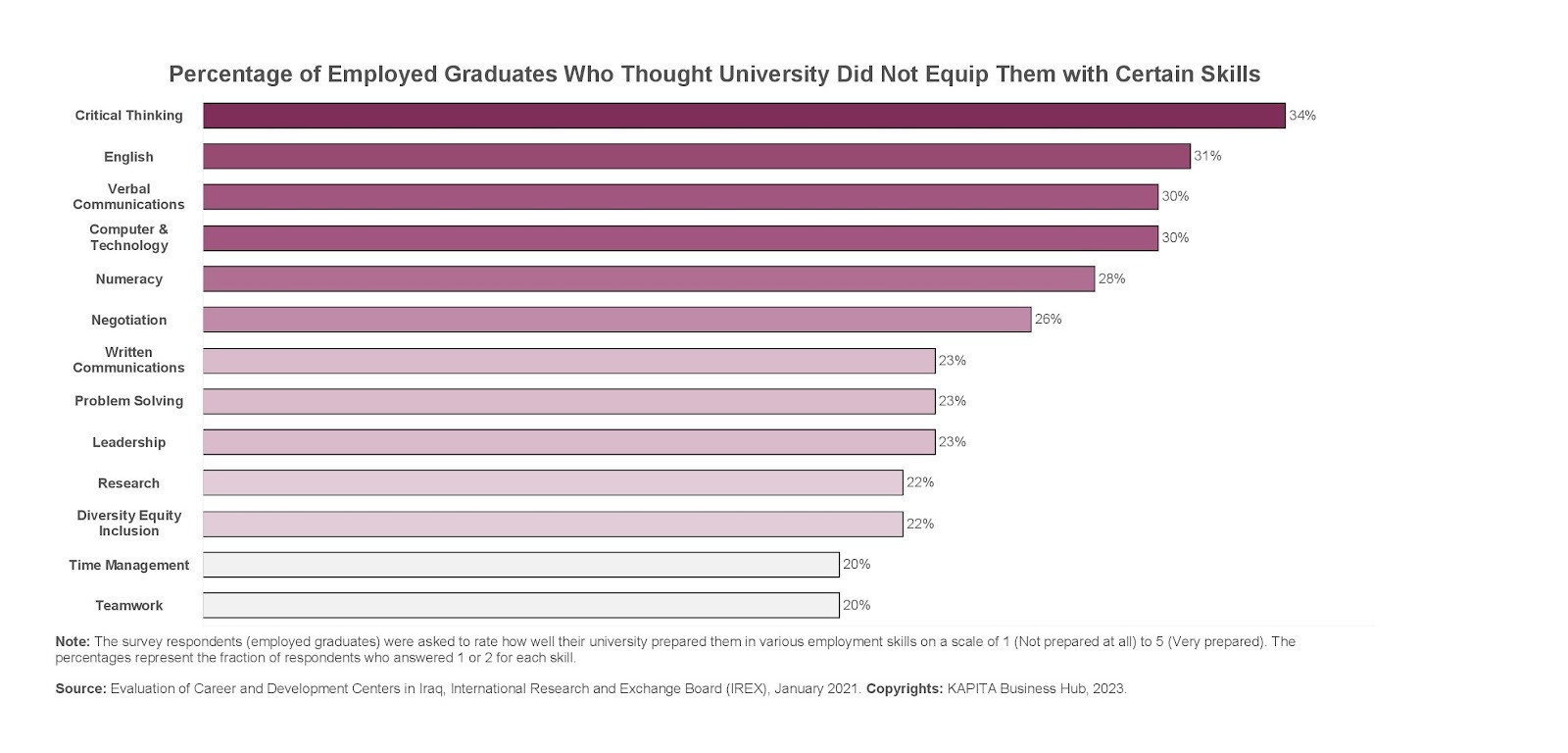
And since the Iraqi employment tendency is mainly toward the public sector, ILO surveys suggest that public sector employment went up from 30% to 38% while the private sector, on the contrary, went down from 70% to 62% between 2004 and 2021. This report provides an analytical overview of this cultural tendency and why it is more appealing to Iraqis in comparison to private-sector employment.
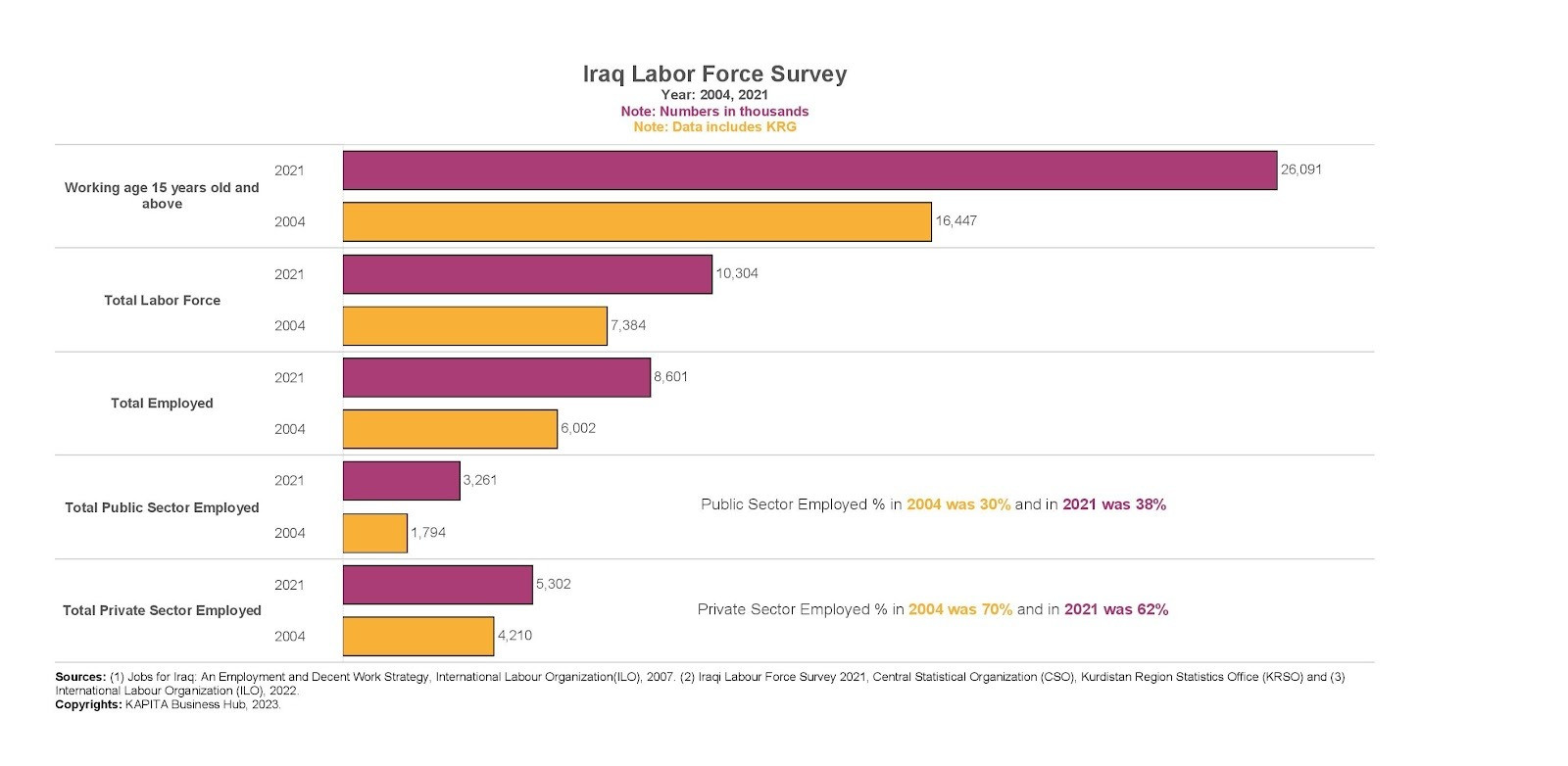
Internships, especially unpaid ones, have been a controversial topic in terms of legality, ethics, and effectiveness, which is something we will explore and discuss in depth. When it comes to Iraq’s internship scene, the private sector plays a notable role with respect to implementing effective models reflecting a win-win scenario for trainers and trainees. The experts we interviewed emphasized the fact that an effective internship structure takes into account the company’s business interests and the intern’s learning objective. The report also lists more than 25 internships provided by companies, training institutions, and international development entities. In the public sector, however, Internships provided are still falling behind in terms of structure, implementation, and outcomes.
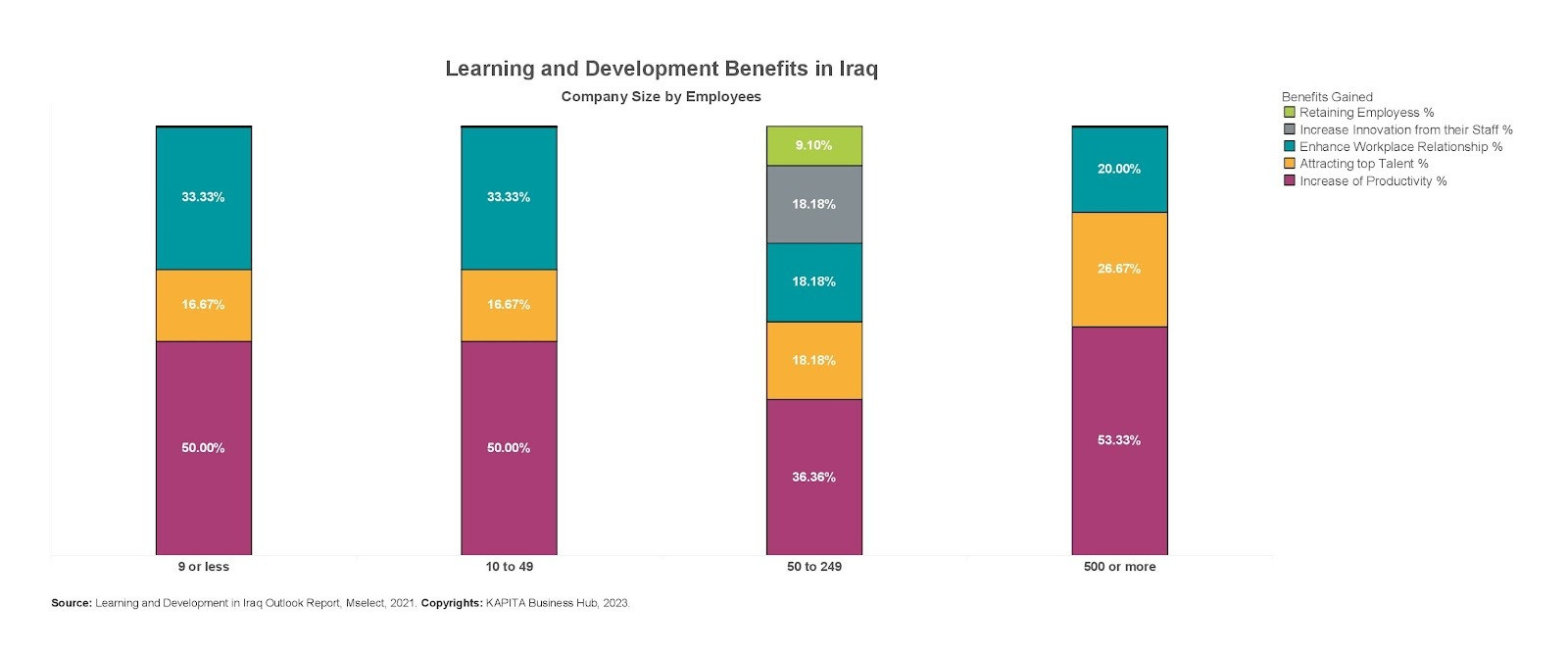
This report takes into consideration previous research and insights from education development experts and business leaders regarding several challenges hindering the proper implementation of internships in Iraq.
Based on the gathered expertise, the report concludes with well-defined objective recommendations on what should be improved to raise the quality of internships in Iraq as an initiative derived from our continuous commitment to developing the state of the Iraqi economy.


